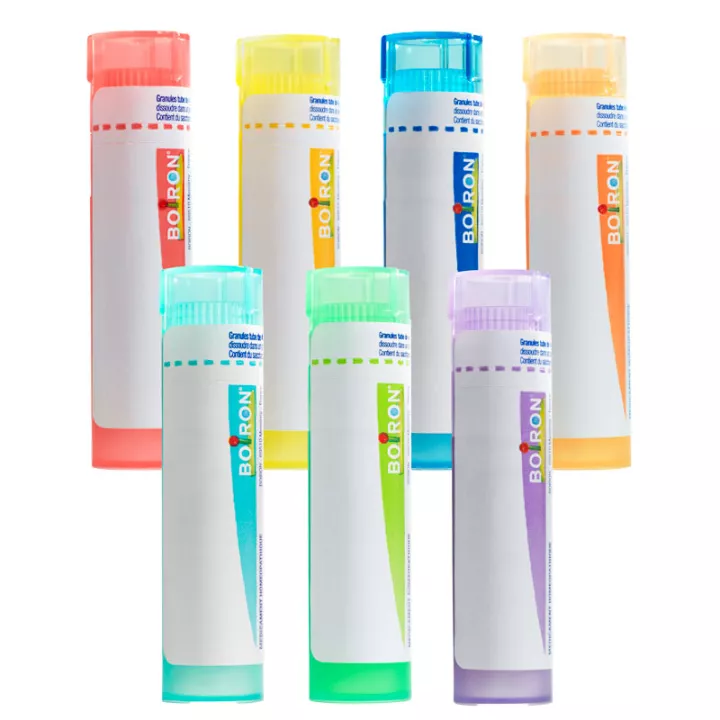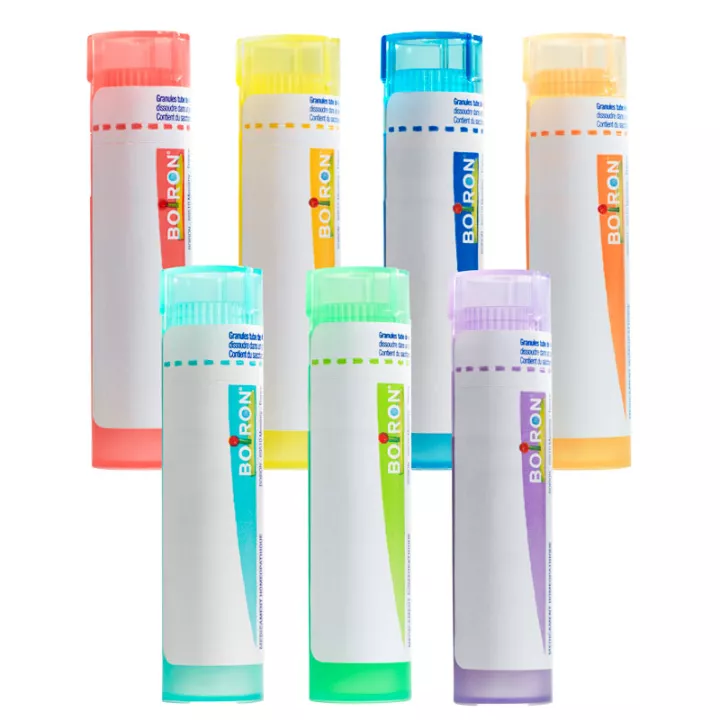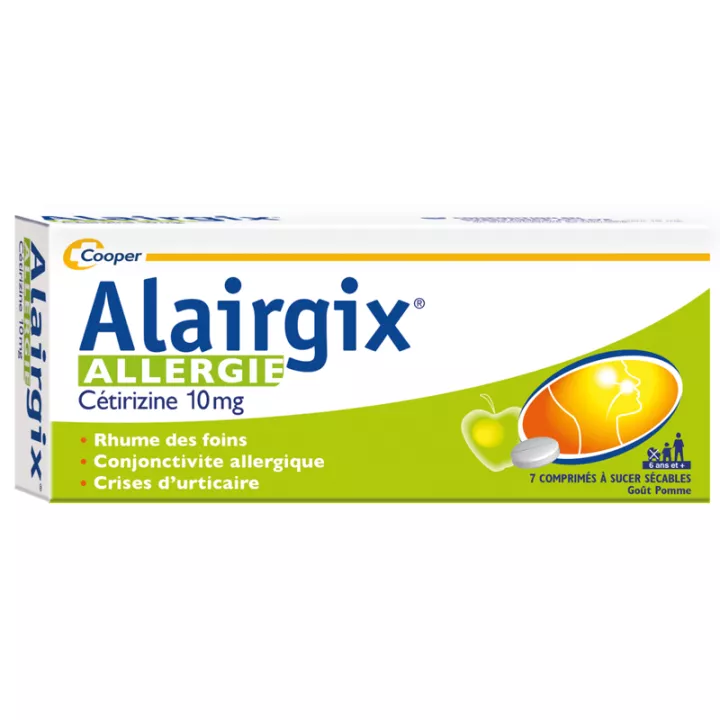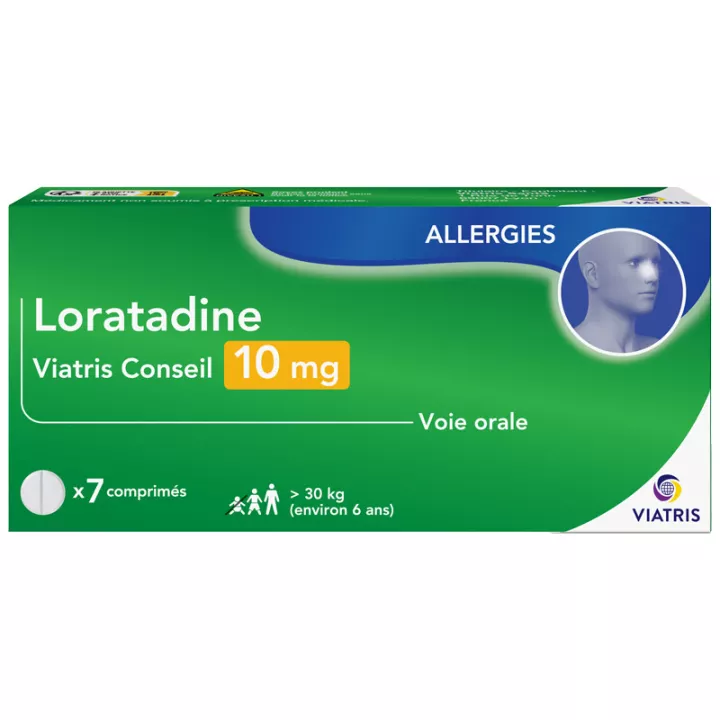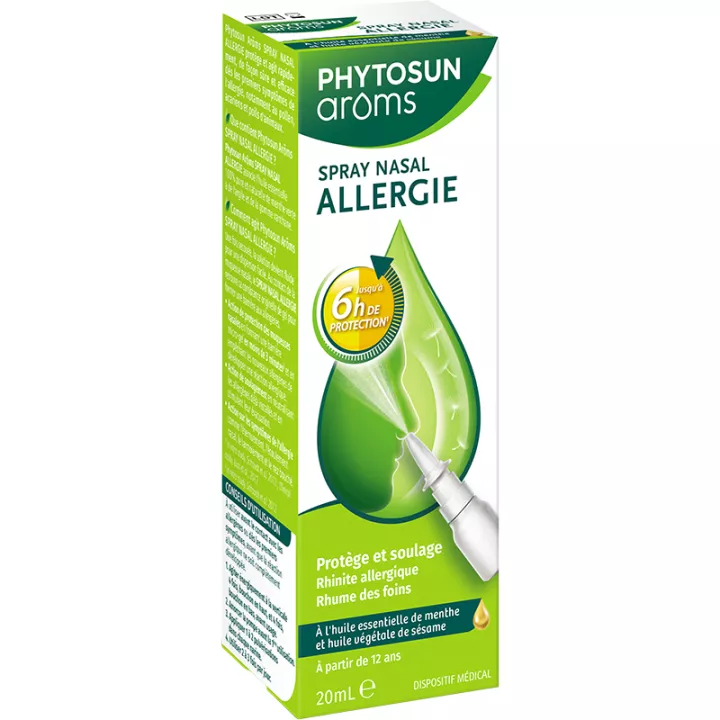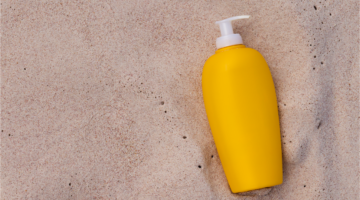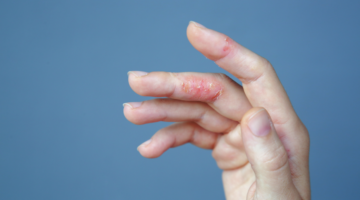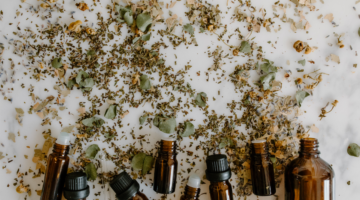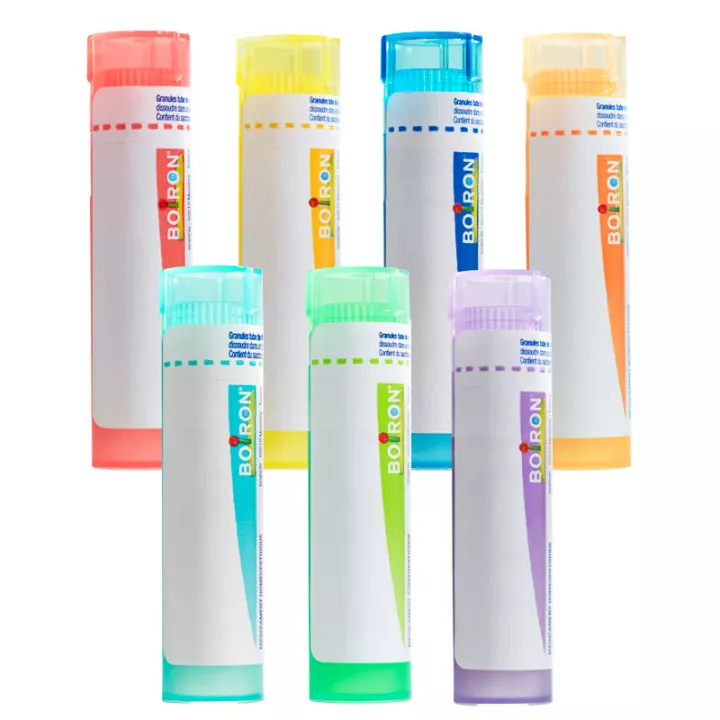How to treat allergic reactions with homeopathy
We offer the following "homeopathic kit" for the prevention and treatment of ENT allergies (allergic rhinitis, hay fever, watery eyes, runny nose).
How to use the Allergy homeopathic kit
This homeopathic remedy is conveniently presented in granule form. Follow the dosage instructions, away from meals and without touching the granules with your fingers.
Choose the right homeopathic strain to suit your symptoms and their intensity.
Allergy cases with runny, irritated eyes
HISTAMINUM 5CH 2 granules 3 times a day
combined with EUPHRASIA 5CH 2 granules 3 times a day
Allergies with irritated nasal wings
HISTAMINUM 5CH 2 granules 3 times a day
combined with ALLIUM CEPA 5CH 2 granules 3 times a day
Allergy causes sneezing in bursts
HISTAMINUM 5CH 2 granules 3 times a day or more in case of acute attack
combined with SABADILLA 5CH 2 granules 3 times a day
Allergy cases with irritated eyes and nose
HISTAMINUM 5CH combined with POLLENS 5CH 2 granules of each 3 times a day, spaced out as soon as improvement occurs.
Allergic reactions homeopathic kit composition
This kit, designed to prevent seasonal allergic symptoms, consists of a tube of 80 granules of each of the following strains:
HISTAMINUM 5CH, EUPHRASIA 5CH, SABADILLA 5CH, POLLENS 5CH, ALLIUM CEPA 5CH
Precautions for use of the Allergie ORL homeopathic kit
- Due to the presence of lactose, this medicine should not be used in cases of galactosemia, glucose-galactose malabsorption syndrome or lactose deficiency.
- Do not take astringent substances (coffee, tobacco, camphor, mint and chamomile) within half an hour of taking the granules or globules. Use mint-free toothpaste.
- Pregnant women: Homeopathic medicines have no chemical toxicity, no contraindications, no interaction with other drugs, and no adverse effects linked to the quantity of product ingested. Pregnant women can take homeopathic medicines without any known risk to themselves or their unborn child.
- Keep homeopathic medicines away from light, heat, humidity and all sources of fumes and perfumes.
- For basic homeopathic treatments: homeopathic medicines are generally taken in doses of 3 to 5 granules 2 to 3 times a day, before meals. Homeopathic doses should of course be taken in accordance with the prescriber's recommendations; they are usually taken once or twice a week (follow the dosage instructions in the instructions for use).
- For acute conditionshomeopathic remedies should be taken every hour until symptoms improve. From then on, take them 3 or 4 times a day, spacing them out, then stop gradually (follow the dosage instructions in the instructions for use).
- Children: For children under 6, dissolve the granules in 100 ml of water.
As the granules take a long time to dissolve, it is necessary to prepare your mixture in advance.
- Pregnant women: Homeopathic medicines have no chemical toxicity, no contraindications, no interaction with other drugs, and no adverse effects linked to the quantity of product ingested. Pregnant women can take homeopathic medicines without any known risk to themselves or their unborn child.
- Keep homeopathic medicines away from light, heat, humidity and all sources of fumes and perfumes.
- What to do if there is no improvement within 24 hours: Certain pathologies cannot be treated with homeopathic medicines simply by self-medication. Their seriousness requires medical advice from a homeopathic or allopathic doctor.
Find out more about allergies
Allergy, also known as hypersensitivity, is an abnormal reaction of the immune system against elements that are foreign to the body (allergens), but harmless.
Which organs are affected by allergic reactions?
Allergies can manifest themselves in different parts of the body: on the skin, in the eyes, in the digestive system or in the respiratory tract. The types and intensity of symptoms vary depending on where the allergy occurs, and on a number of other factors specific to each individual. Symptoms can be as subtle as the appearance of redness on the skin, or as life-threatening as anaphylactic shock.
Causes of allergies
For an allergy to occur, 2 conditions are essential: the body must be sensitive to a substance, called an allergen, and this substance must be present in the person'senvironment.
What are we allergic to?
Among airborne allergens, the most common are pollen, dust mite droppings and pet dander.
Allergic to pet hair? We're not allergic to pet hair, but to the dander or saliva of animals (cats, dogs), just as we're not allergic to pillow and comforter feathers, but to the droppings of the dust mites that hide in them.




